Sanctions against Russia To Remain Until Full Implementation of Minsk Agreements
Adelina Marini, March 19, 2015
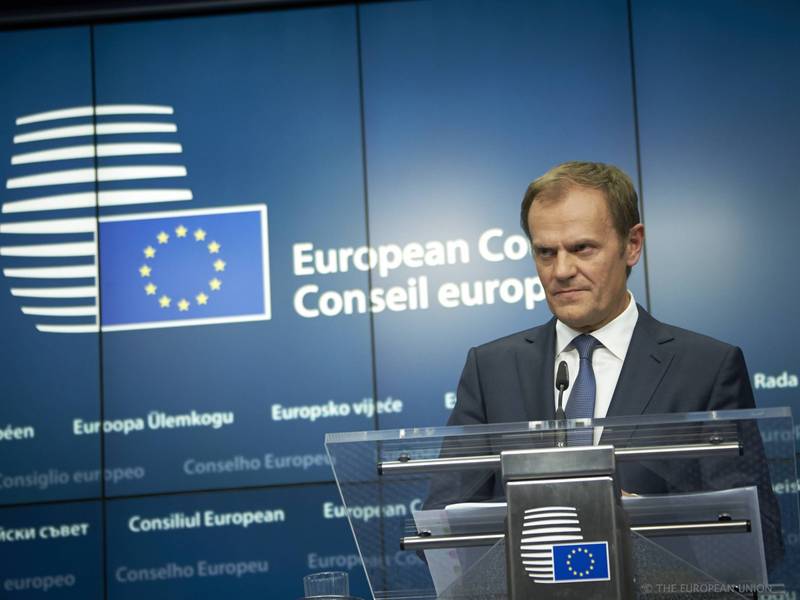 European Council chief Donald Tusk is preparing a new proposal for today's EU summit which envisages the sanctions against Russia to remain in force until the full implementation of the Minsk peace agreements, said a senior EU source. The former prime minister of Poland has been holding consultations with German Chancellor Angela Merkel and French President Francois Hollande to support the proposal in their capacity as participants in the negotiations of the two truces in the Belarus capital. Donald Tusk is of the opinion that if Angela Merkel and Francois Hollande stand behind the idea this would ensure the support of the other member states as well. Not every detail is agreed upon yet but Tusk is convinced an agreement is possible, according to the source.
European Council chief Donald Tusk is preparing a new proposal for today's EU summit which envisages the sanctions against Russia to remain in force until the full implementation of the Minsk peace agreements, said a senior EU source. The former prime minister of Poland has been holding consultations with German Chancellor Angela Merkel and French President Francois Hollande to support the proposal in their capacity as participants in the negotiations of the two truces in the Belarus capital. Donald Tusk is of the opinion that if Angela Merkel and Francois Hollande stand behind the idea this would ensure the support of the other member states as well. Not every detail is agreed upon yet but Tusk is convinced an agreement is possible, according to the source.
So far, the member states have failed to agree on extending the sanctions against Russia introduced last year in response to Russia's annexation of the Ukrainian peninsula Crimea. Moreover, an extension or expansion of the sanctions is an issue of debates, as Bulgarian Foreign Minister Daniel Mitov explained on Monday (16 March) after the meeting of the EU foreign ministers. His and other ministers' statements made it clear that there is no agreement on whether the Minsk agreements are being respected or not. Lithuania's top diplomat Linas Linkevicius said before the Monday meeting that the agreements are not at all respected. According to Mr Mitov, however, the number of violations is on the decline and this is a trend. The Minsk agreements are the only instrument the EU has at the moment to maintain a dialogue with Russia, he said.
If it comes to an escalation of the conflict the EU is ready to act, assured the foreign minister of Bulgaria. Within the Council there are various opinions, some of which see things in more optimistic colours whereas others are more suspicious. Bulgaria is among the moderates who stick to the facts, Daniel Mitov emphasised. At the moment no one wants to discuss the option of extending the existing sanctions or introducing new ones. No other message should be conveyed to Russia than the readiness for political and diplomatic solution to the conflict, Mr Mitov added. He quoted the latest opinion poll by Alfa Research, according to which 76% of the Bulgarians support the Bulgarian government's moderate foreign policy. Around the conflict in Ukraine some 30% have changed their attitude to Russia in a negative direction, keeping, however, their sympathies for the Russian people, Daniel Mitov said and underlined that the Bulgarians have proved in this situation to be "very smart" making a distinction between their sympathies for the Russian people, "which we all have", and for certain policy.
In such an atmosphere Donald Tusk will table his proposal to keep the sanctions against Russia in force until the full implementation of the Minsk agreements if it is unequivocally supported by France and Germany. According to the Bulgarian foreign minister, there will be no disagreements regarding what exactly means a full implementation of the truces because there are certain numbers that are being monitored.
Concerning the military exercises Russia is conducting along EU borders, it is possible this to be raised as an issue by one or two leaders, an EU source said. However, this is an EU meeting not a NATO summit, so the issue will not be a leading one, the source added. On this issue, the Bulgarian top diplomat said that NATO had no intentions to interfere neither in the Ukrainian conflict nor anywhere else, but whenever there are conflicts near the NATO borders exercises are taking place to increase the capacity of national armies. At the moment, the terrorist organisation Islamic State is a threat as well, which has already spread into Libya which will be one of the main topics on the agenda of the spring EU summit.
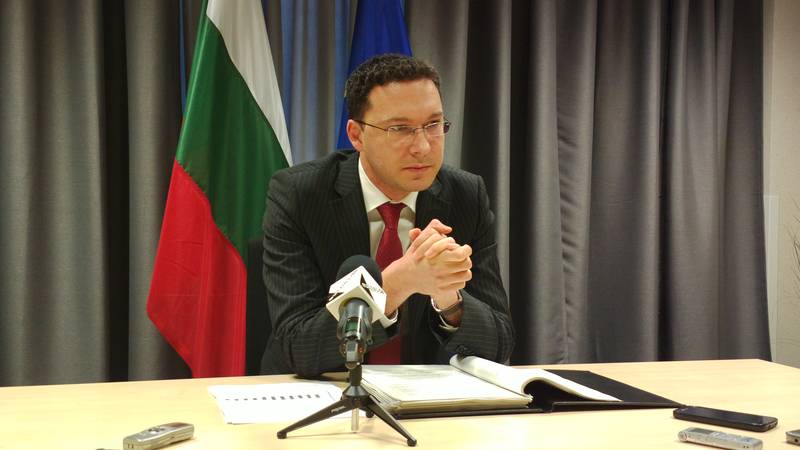 A very large part of the talks will be dedicated on the Eastern Partnership which involves six countries from the post-Soviet space - Ukraine, Belarus, Georgia, Moldova, Armenia and Azerbaijan. The discussions will focus on the preparation of the summit in Riga in May with these countries. European Council President Donald Tusk is expected to propose to the 28 leaders the current course to the partnership to be maintained. Now is not the time for more ambitious initiatives but it is not the time to make a step back either, is Tusk's logic. He will propose, however, a differentiation of the countries in the partnership because three of them have more serious ambitions to deepen their partnership with EU by concluding comprehensive free trade agreements, whereas the others have no such ambitions. In the first group are Ukraine, Georgia and Moldova. The lessons from the work on the Eastern Partnership so far is that more work is needed to strengthen the state structures and this should be the motto of the Riga declaration, Tusk believes.
A very large part of the talks will be dedicated on the Eastern Partnership which involves six countries from the post-Soviet space - Ukraine, Belarus, Georgia, Moldova, Armenia and Azerbaijan. The discussions will focus on the preparation of the summit in Riga in May with these countries. European Council President Donald Tusk is expected to propose to the 28 leaders the current course to the partnership to be maintained. Now is not the time for more ambitious initiatives but it is not the time to make a step back either, is Tusk's logic. He will propose, however, a differentiation of the countries in the partnership because three of them have more serious ambitions to deepen their partnership with EU by concluding comprehensive free trade agreements, whereas the others have no such ambitions. In the first group are Ukraine, Georgia and Moldova. The lessons from the work on the Eastern Partnership so far is that more work is needed to strengthen the state structures and this should be the motto of the Riga declaration, Tusk believes.
This means to use the same approach which EU, in cooperation with the IMF, has applied in Ukraine - Russia to be isolated with democratic means. It is important to note in this context, however, that the Council adopted last week its negotiating stance with the European Parliament regarding Juncker's investment plan. According to the position, this plan should spread to cover also the countries form the European Neighbourhood Policy, the enlargement countries and those which EU has free trade agreements with.
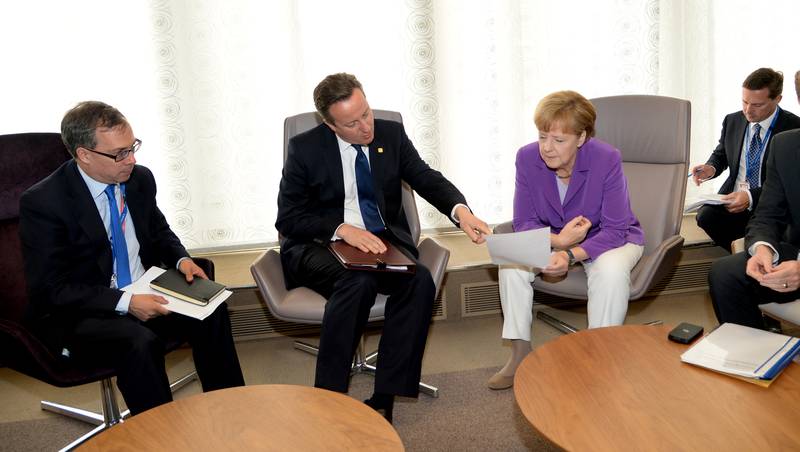 David Cameron, Angela Merkel | © Council of the EU
David Cameron, Angela Merkel | © Council of the EU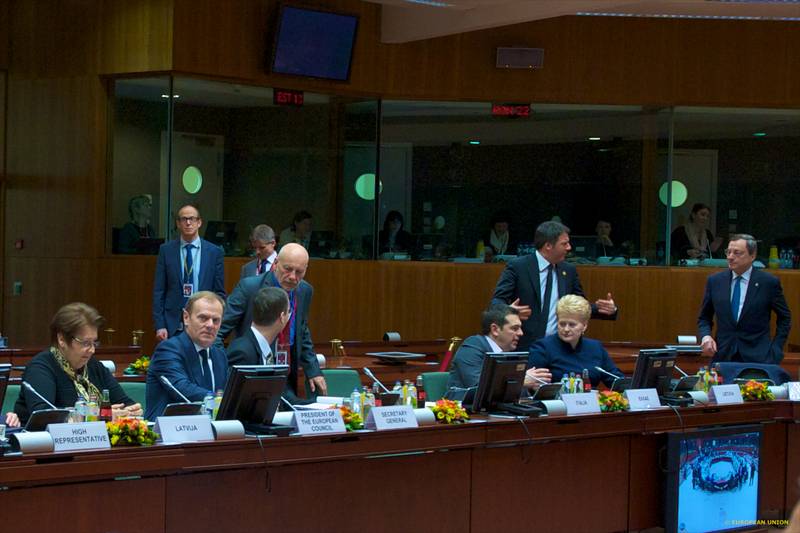 | © Council of the EU
| © Council of the EU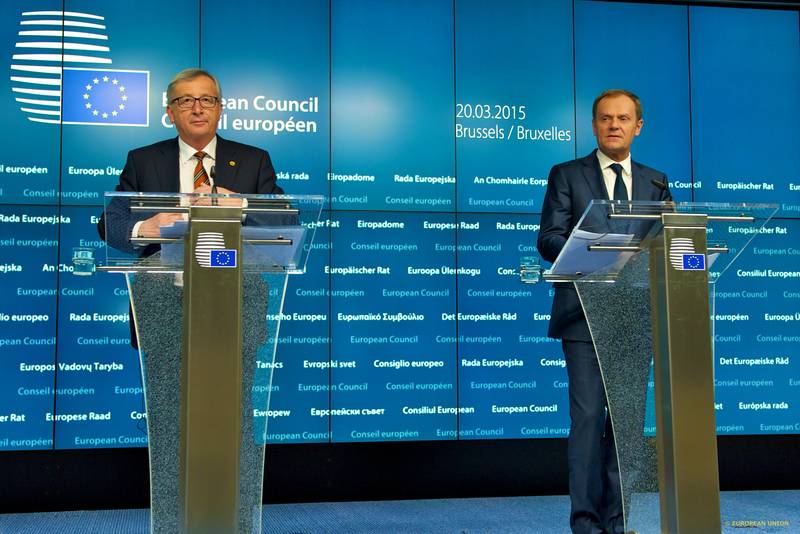 Jean-Claude Juncker, Donald Tusk | © Council of the EU
Jean-Claude Juncker, Donald Tusk | © Council of the EU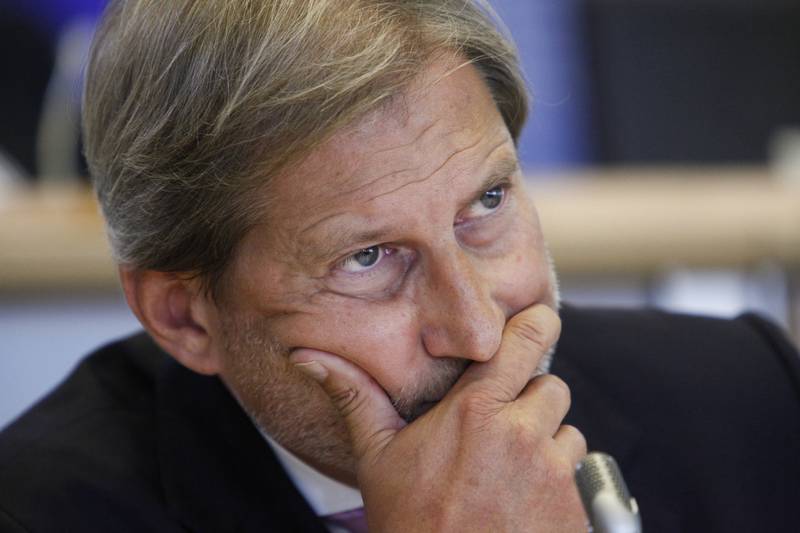 Johannes Hahn | © European Parliament
Johannes Hahn | © European Parliament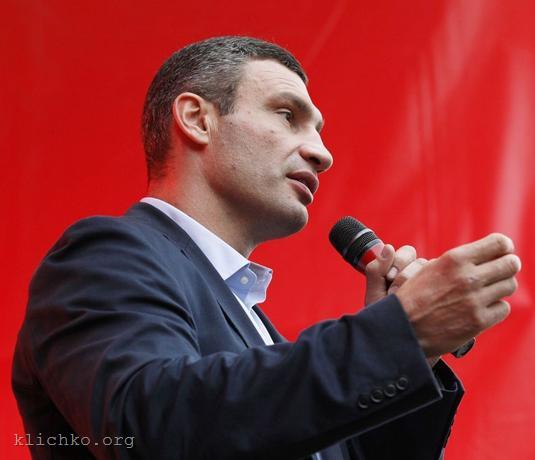 | © klichko.org
| © klichko.org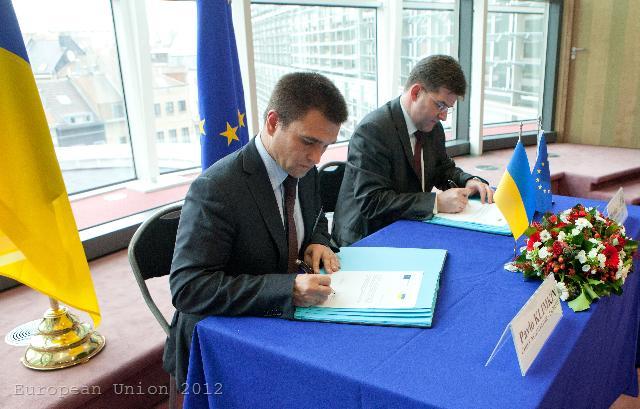 | © European Union 2012
| © European Union 2012